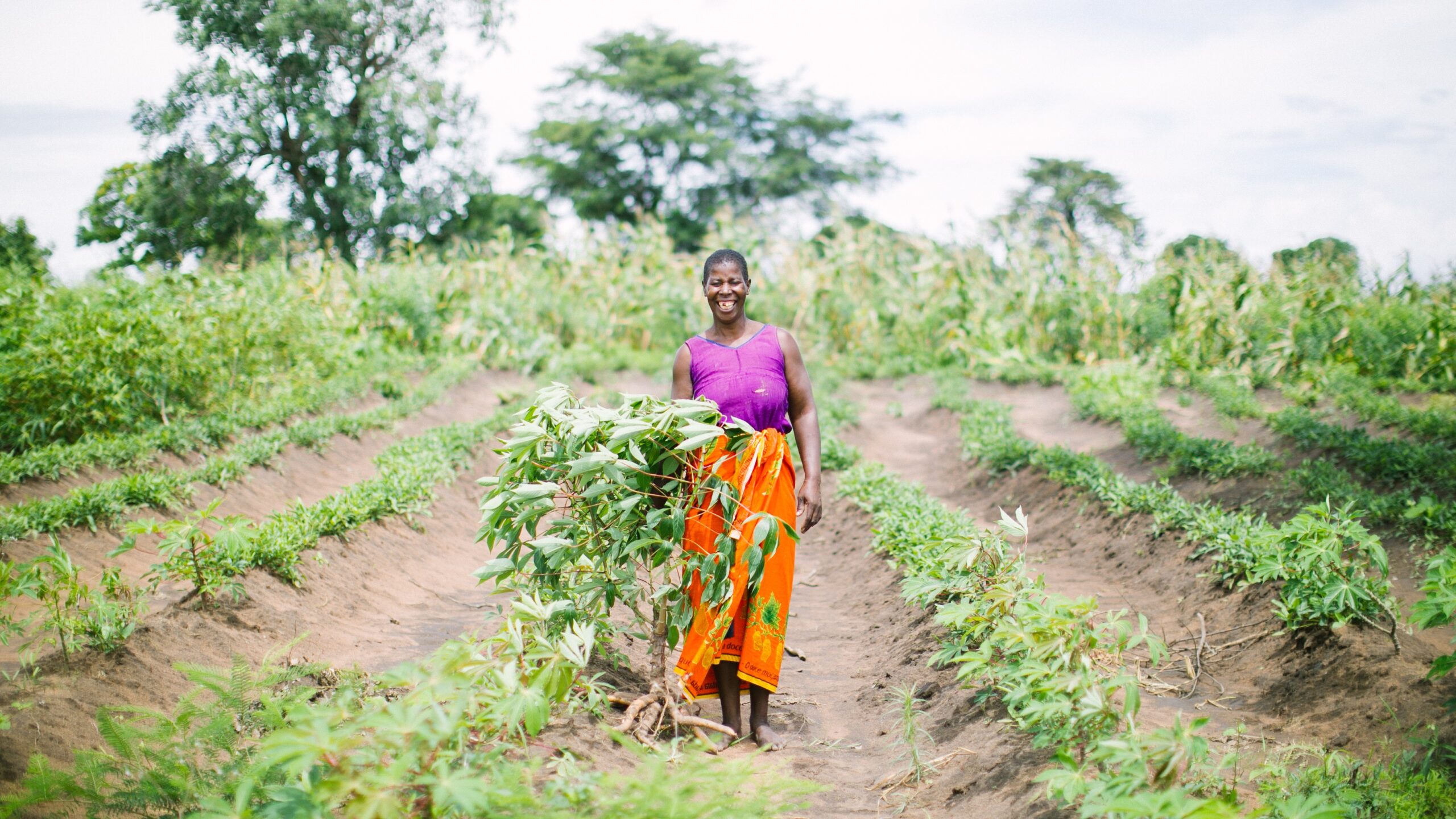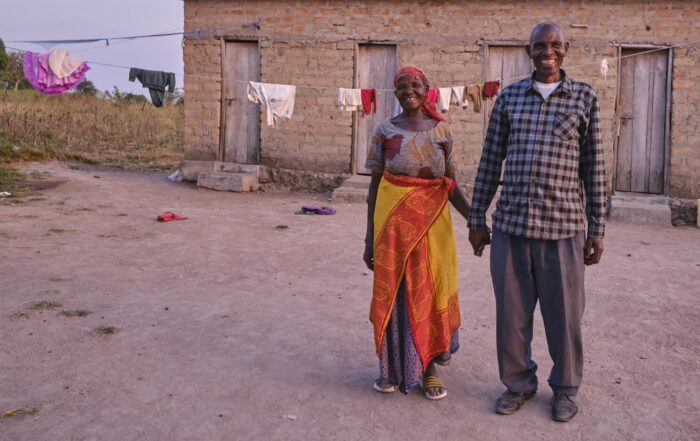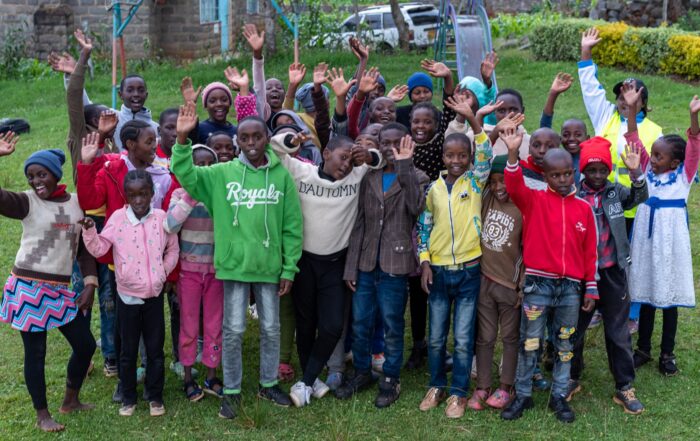
“The Other Farmers Said I Was Lucky”

“The Other Farmers Said I Was Lucky”
Estela Jaime knows hard work. Alone, she cares for her own five children and seven grandchildren, all living in her compound in Nabuzi, in the northernmost province of Mozambique, Niassa. In a country ranked near the bottom of the UN Human Development Index, women like Estela face enormous challenges: infrastructure battered by years of civil strife, almost nonexistent educational opportunities, inadequate management of natural resources, and increasing climate disruption, with alternating floods and droughts threatening farmers’ livelihoods. Estela faces all of these challenges head-on.
So in 2017, when she and other farmers in her community received sustainable agriculture training and cassava seeds from World Renew’s partner in Mozambique, the Diocese of Niassa, Estela went to work, eager to try out the promise of a new drought-resistant seed that might allow her crops to flourish in the face of climate disruption. “I was,” she says, “privileged to be the only woman selected.”
A year later, extension officers from the diocese returned to assess the farmers’ fields and found that, of the six fields planted with the new seeds, only one had survived: Estela’s. “The other farmers said I was lucky,” she recalls, “and most of them blamed the quality of the cassava seeds. But in reality, I succeeded because I invested a lot of time and labor into the field and the outcome was good, beyond expectations.”
In an open meeting, Estela was elected a lead farmer in her community. She now leads a group of 17 farmers—10 men and 7 women—who make regular visits to demonstration plots, where they learn new planting techniques like spacing and intercropping. “Together,” she says, “we are challenging ourselves and making progress at implementing these new practices in our own fields.”
Estela makes a point of involving other people who are not a part of the appointed group, hoping that many others in her community can benefit from the learning that is stabilizing her livelihood and that of the many people in her care. “It’s my wish,” she says, “that in the next season we will be expanding, adding more lead farmers and demonstration plots in the community, God willing.”
Estela Jaime knows hard work. Alone, she cares for her own five children and seven grandchildren, all living in her compound in Nabuzi, in the northernmost province of Mozambique, Niassa. In a country ranked near the bottom of the UN Human Development Index, women like Estela face enormous challenges: infrastructure battered by years of civil strife, almost nonexistent educational opportunities, inadequate management of natural resources, and increasing climate disruption, with alternating floods and droughts threatening farmers’ livelihoods. Estela faces all of these challenges head-on.
So in 2017, when she and other farmers in her community received sustainable agriculture training and cassava seeds from World Renew’s partner in Mozambique, the Diocese of Niassa, Estela went to work, eager to try out the promise of a new drought-resistant seed that might allow her crops to flourish in the face of climate disruption. “I was,” she says, “privileged to be the only woman selected.”
A year later, extension officers from the diocese returned to assess the farmers’ fields and found that, of the six fields planted with the new seeds, only one had survived: Estela’s. “The other farmers said I was lucky,” she recalls, “and most of them blamed the quality of the cassava seeds. But in reality, I succeeded because I invested a lot of time and labor into the field and the outcome was good, beyond expectations.”
In an open meeting, Estela was elected a lead farmer in her community. She now leads a group of 17 farmers—10 men and 7 women—who make regular visits to demonstration plots, where they learn new planting techniques like spacing and intercropping. “Together,” she says, “we are challenging ourselves and making progress at implementing these new practices in our own fields.”
Estela makes a point of involving other people who are not a part of the appointed group, hoping that many others in her community can benefit from the learning that is stabilizing her livelihood and that of the many people in her care. “It’s my wish,” she says, “that in the next season we will be expanding, adding more lead farmers and demonstration plots in the community, God willing.”



